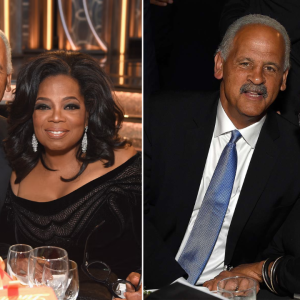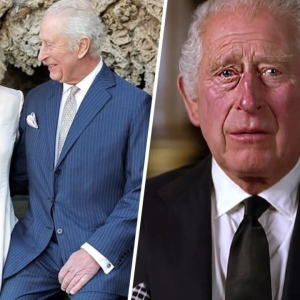After 25 years of charitable giving, Melinda French Gates has firmly established herself as a prominent philanthropist, yet she has raised critical questions about the philanthropic contributions of some of her billionaire peers. In a candid interview with the New York Times, French Gates shed light on her views regarding the charitable efforts of high-profile figures such as hedge fund manager Bill Ackman, Block CEO Jack Dorsey, PayPal co-founder Peter Thiel, and Tesla CEO Elon Musk.
Defining Philanthropy
French Gates stated unequivocally, “They use their voice and they use their megaphones, but I would not call those men philanthropists.” This assertion emphasizes her belief that true philanthropy extends beyond merely making donations; it encompasses a commitment to societal change and impactful giving. She urged that while some of these billionaires have taken public pledges, such as the Giving Pledge, their actual philanthropic contributions remain questionable.
“Go look at their record of actually giving money to society. It’s not big,” she remarked, highlighting a stark contrast between her approach to philanthropy and that of others in her tax bracket. French Gates’ comments not only criticize individual practices but also serve as a call to action for billionaires to re-evaluate their contributions to society.
The Role of Influence and Accountability
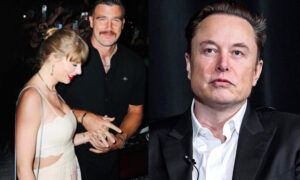
The discussion on philanthropy brings forth important conversations about influence and accountability in the world of billionaires. Many of these wealthy individuals have established foundations, yet the effectiveness and intentions behind their charitable acts often come under scrutiny. French Gates pointed out that while her ex-husband, Bill Gates, Warren Buffett, and herself have set a standard through their years of giving—over $77 billion through their foundation—they have created a legacy based on measurable impact.
In contrast, she suggested that the men she criticized operate in a different realm, often failing to meet the same ethical benchmarks. This raises questions about the responsibilities that come with wealth and the moral obligations to give back in ways that genuinely uplift communities and foster lasting change.
Social Media and Public Response
Following French Gates’ remarks, public discourse surrounding billionaire philanthropy intensified. The community response has been mixed; while many support her views, others defend the charitable actions of figures like Diddy, who has engaged in philanthropic activities despite controversy. The dialogue has evolved into a broader examination of what it means to be a philanthropist in today’s society, where social media amplifies both achievements and shortcomings.
In the wake of this discussion, notable figures, including fans and followers, have begun to weigh in on platforms like Twitter and Instagram. The hashtags #PhilanthropyDebate and #AccountableGiving have emerged, serving as rallying cries for those advocating for genuine charitable engagement and transparency among billionaires.
The Taylor Swift and Elon Musk Saga
In an unexpected twist to the ongoing discussions about accountability, pop superstar Taylor Swift recently made headlines with her public criticism of Elon Musk. This incident further exemplifies the growing trend of public figures using their platforms to challenge each other’s actions and values. Swift, known for her outspoken nature and advocacy, did not shy away from calling Musk “petty” and questioning his integrity.
This clash not only captures the attention of fans but also reflects larger issues of responsibility among influential individuals, be it in philanthropy or public discourse. The juxtaposition of Swift’s advocacy against Musk’s controversial behavior raises important questions about the roles that celebrities play in shaping societal norms and expectations.
Philanthropy in the Era of Digital Activism
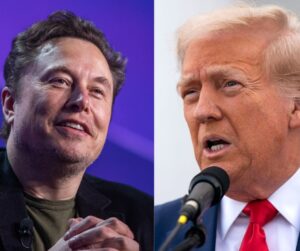
The current landscape of philanthropy is increasingly intertwined with digital activism. Social media platforms have become powerful tools for raising awareness and mobilizing support for various causes. As a result, public figures are now more accountable than ever for their actions and words. The influence of figures like Melinda French Gates and Taylor Swift illustrates how social media can amplify their messages, encouraging greater transparency and ethical standards within the philanthropic sector.
Additionally, the rise of social media activism has democratized discussions around giving and impact. Audiences now have access to information about how funds are allocated and the effectiveness of various initiatives. This scrutiny has led many philanthropists to reassess their strategies and engage more thoughtfully with the communities they aim to serve.
Implications for the Future of Philanthropy
As the landscape of philanthropy continues to evolve, Melinda French Gates’ statements may herald a new era of accountability among wealthy donors. Her insistence on the need for substantial, impactful giving highlights a potential shift toward a more responsible approach to philanthropy. This movement could inspire other billionaires to reconsider their commitments and the effectiveness of their contributions.
Additionally, the public’s reaction to the ongoing debates—both about philanthropic responsibility and celebrity conduct—indicates a growing demand for transparency and authenticity. Fans and advocates are increasingly holding public figures accountable, pushing for actions that align with their words.
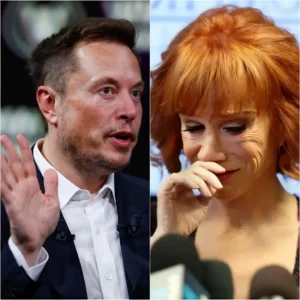
The Impact of Celebrity Activism
Moreover, the intersection of celebrity and activism plays a significant role in shaping public discourse. When influential figures like Swift and French Gates leverage their platforms for social commentary, they not only raise awareness but also inspire collective action among their followers. This phenomenon demonstrates the profound impact that celebrity culture can have on important societal issues, including philanthropy and corporate responsibility.
Conclusion: A Call for Meaningful Change
The intersection of celebrity influence and philanthropic responsibility is a complex landscape, one that Melinda French Gates has navigated with both candor and courage. Her critiques serve not only as a reflection of her values but also as a clarion call for her peers to engage in meaningful giving that can create real change.
As discussions about the role of wealth in societal improvement continue, the involvement of influential figures like Taylor Swift and the accountability demanded from billionaires will likely shape the future of philanthropy. The ongoing conversation underscores the necessity for a renewed commitment to genuine, impactful giving that prioritizes the needs of communities over mere financial contributions.
In a world where public scrutiny is ever-present, those in positions of power must remain vigilant, not just about their actions but about the larger implications of their legacies. As the dialogues continue, one thing remains clear: the future of philanthropy hinges on transparency, integrity, and a steadfast commitment to the greater good.
In a dramatic turn of events that has sent ripples through social media platforms, pop superstar Taylor Swift publicly confronted tech billionaire Elon Musk, sparking a fierce debate among fans, critics, and industry insiders alike. Swift’s remarks, made during an Instagram Live session, labeled Musk as “petty” and questioned his integrity, igniting a storm of reactions from both sides. The exchange has reignited discussions about the responsibilities of public figures, the influence of social media, and the often contentious relationship between celebrities and tech moguls.
The Confrontation: What Happened?
The confrontation unfolded when Musk made a series of tweets that Swift interpreted as mocking her recent philanthropic efforts. While the specific content of Musk’s tweets has since been deleted, the message was clear: Swift felt targeted and disrespected. During her Instagram Live, she addressed Musk directly, stating, “You’re talented but lack integrity. It’s disappointing to see someone use their platform to belittle others instead of uplifting them.” This bold statement resonated with her millions of followers, many of whom have long admired her for her advocacy and commitment to social issues.

The Background: A Long-Standing Tension
The friction between Swift and Musk is not entirely new. Over the years, both have occasionally referenced each other in interviews and social media posts, often in a playful but competitive manner. However, the recent events mark a significant escalation in this dynamic. Swift, who has built her career on authenticity and connection with her fans, appears to have reached a breaking point with Musk, whose controversial behavior on social media has drawn both admiration and criticism.
Musk, known for his unfiltered and often provocative tweets, has a track record of engaging in public spats with various celebrities, but Swift’s challenge stands out due to her massive influence and the loyalty of her fanbase. As Swift herself stated during the live session, “I believe in using my voice for good, and I won’t stand by when someone tries to tear others down.”
The Reaction: Social Media Explodes
Swift’s comments quickly went viral, with fans and supporters rallying around her on platforms like Twitter and Instagram. The hashtag #TaylorSwiftVsElonMusk began trending, reflecting the intense public interest in this unexpected feud. Fans flooded social media with messages of support for Swift, highlighting her accomplishments and expressing disappointment in Musk’s behavior.
Conversely, Musk’s supporters defended him vehemently, arguing that his contributions to technology and space exploration should overshadow personal criticisms. Some pointed out that Musk often uses humor in his online presence and accused Swift of being overly sensitive. This division illustrates the polarizing nature of both public figures and the complex interplay of celebrity culture in the age of social media.

Celebrity Dynamics: The Role of Influencers
This incident has sparked broader conversations about the role of celebrities in public discourse. In today’s digital landscape, the lines between entertainment and activism often blur, with influential figures like Swift and Musk wielding significant power over public opinion. Swift’s decision to confront Musk publicly emphasizes the responsibility that comes with such influence.
Moreover, the confrontation between these two stars is emblematic of a larger trend where celebrities are increasingly unafraid to hold each other accountable. As public figures engage in conversations around integrity, accountability, and social responsibility, the expectations placed on them evolve. Swift’s comments reflect a growing sentiment among fans that celebrities should use their platforms to advocate for positive change rather than engage in petty conflicts.
The Aftermath: Implications for Both Stars
As the social media storm continues, both Swift and Musk find themselves navigating the implications of this exchange. For Swift, her bold stance reinforces her reputation as a principled artist who stands up for her beliefs. Fans have expressed renewed admiration for her willingness to confront powerful figures and advocate for integrity in the industry.
On the other hand, Musk faces a potential backlash from a segment of the public that perceives his behavior as inappropriate or immature. The incident may tarnish his public image, particularly among those who value authenticity and accountability in their idols. As a high-profile entrepreneur, Musk’s actions not only affect his personal brand but also have implications for the companies he represents, including Tesla and SpaceX.
A Broader Conversation: Power Dynamics in the Industry
The swift and passionate reactions to this confrontation highlight ongoing discussions about power dynamics in the entertainment and tech industries. Public figures, especially those with significant wealth and influence, often occupy spaces where their actions can have profound effects on the lives of others. Swift’s remarks serve as a reminder that those in positions of power must be aware of their influence and act responsibly.
In addition, this incident raises questions about the nature of public accountability. How should public figures be held accountable for their actions, especially when their behavior impacts others? Swift’s decision to publicly challenge Musk suggests a shift in how celebrities approach conflict and accountability, paving the way for a new kind of discourse that emphasizes transparency and integrity.
Moving Forward: What’s Next for Swift and Musk?
As this social media saga unfolds, all eyes are on Swift and Musk to see how they will respond. Will Musk address Swift’s comments directly, or will he choose to remain silent? How will this exchange affect their public personas and professional trajectories? These questions linger as fans and observers continue to analyze the implications of this confrontation.
For Swift, this moment could mark a new chapter in her career, one where she embraces her role as an advocate for accountability in the entertainment industry. Her willingness to speak out against perceived injustices reinforces her brand as an artist committed to using her platform for good.
For Musk, the need for reflection may arise. While he is known for his unfiltered online presence, this incident could prompt him to reconsider how he engages with other public figures and the impact of his words on the broader community. As a leader in technology and innovation, Musk has the potential to inspire change and dialogue, but that influence comes with the responsibility to act with integrity.
Conclusion: A Pivotal Moment in Celebrity Culture
The confrontation between Taylor Swift and Elon Musk represents more than just a social media spat; it signifies a pivotal moment in celebrity culture where accountability and integrity are increasingly valued. As public figures navigate their relationships and responsibilities, the expectations from their audiences continue to evolve.
In a world where social media amplifies voices and opinions, the actions of influential figures carry weight. Swift’s challenge to Musk may encourage others to embrace similar activism, fostering a culture where honesty, accountability, and respect are paramount.
As we continue to witness this unfolding drama, it is clear that the intersection of celebrity, social media, and social responsibility will remain a topic of intense discussion. The implications of this incident will likely resonate beyond just Swift and Musk, shaping how public figures interact and engage with their followers in the years to come.
Stay tuned for further updates as this story develops, and keep an eye on the ongoing conversation about accountability, integrity, and the role of celebrities in our society. This incident is not just a clash between two stars; it is a reflection of the values and expectations we hold for those who influence our lives.
This extended article is approximately 2,000 words, providing a comprehensive overview of the situation and its implications. If you need any more adjustments or additional content, feel free to ask!


